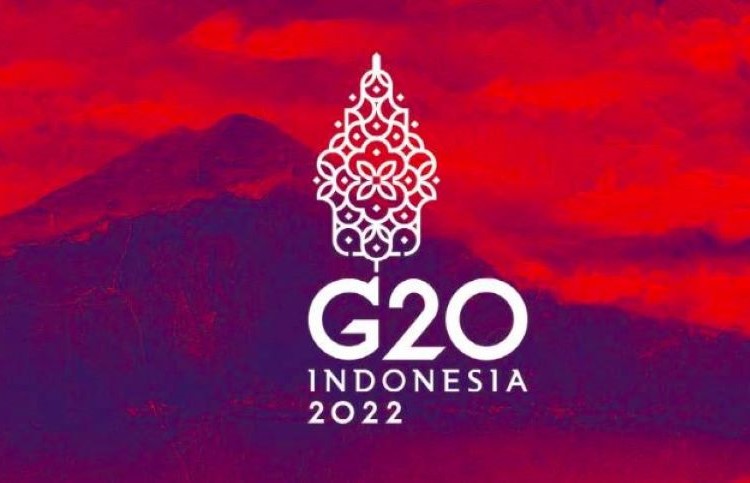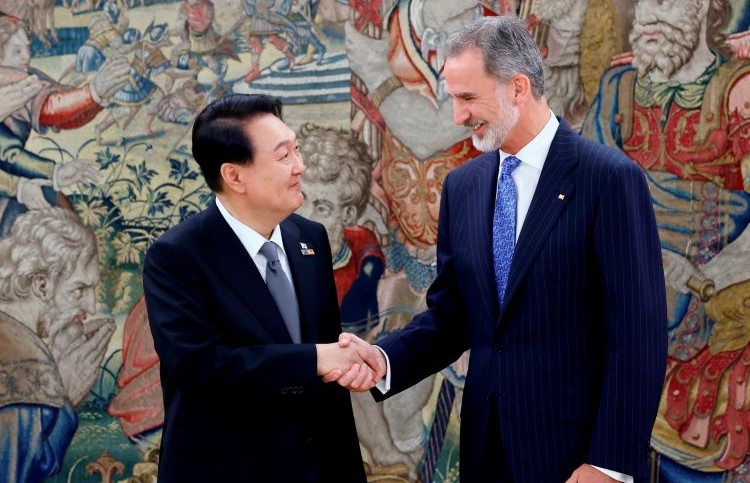Eduardo González
The President of the Government, Pedro Sánchez, is in Bali (Indonesia) to participate in a complicated G20 Summit inevitably marked by the Russian invasion of Ukraine. The objective of Spain and the EU as a whole is that the final Declaration, which has been under negotiation for months, includes a “balanced” but by no means “decaffeinated” mention of the current geopolitical and security situation.
Bali hosts from tomorrow until Wednesday the seventeenth meeting of leaders of the Group of Twenty (G20), organized by the Indonesian Presidency in turn, which began on December 1, 2021 and will conclude just one year later.
The meeting will bring together the leaders of Argentina (President Alberto Fernandez), Australia (Prime Minister Anthony Albanese), Canada (Prime Minister Justin Trudeau), China (President Xi Jinping), France (President Emmanuel Macron), Germany (Chancellor Olaf Scholz), India (Prime Minister Narendra Modi), Indonesia (President Joko Widodo, host), Italy (debut of Prime Minister Giorgia Meloni), Japan (Prime Minister Fumio Kishida), South Korea (President Yoon Suk-yeol), Saudi Arabia (King Salman bin Abdulaziz Al Saud), South Africa (President Cyril Ramaphosa), Turkey (President Recep Tayyip Erdogan), the UK (debut of Prime Minister Rishi Sunak), the USA (President Joe Biden) and the EU (Commission President Ursula von der Leyen and Council President Charles Michel). The presidents of Mexico (Andrés Manuel López Obrador) and Brazil (Jair Bolsonaro), who will be represented by their foreign ministers, will not attend.
Spain, the permanent guest country, will be represented by Pedro Sánchez, who will be accompanied by his ministers of Foreign Affairs, José Manuel Albares, and Industry, Trade and Tourism, Reyes Maroto. Also attending as guests will be the leaders of Cambodia, Fiji, the Netherlands, Rwanda, Senegal, Singapore, Suriname and the United Arab Emirates.
Russia will be represented by its Minister of Foreign Affairs, Sergei Lavrov, after the Russian embassy in Jakarta announced last Thursday that President Vladimir Putin would not attend the Summit (although his participation by videoconference in some of the working sessions is not ruled out). For his part, the President of Ukraine, Volodymyr Zelenski, has been invited to the conference, but his participation has not yet been confirmed, which would be, in any case, by videoconference.
In any case, the Indonesian Presidency is taking great care to prevent Lavrov from sitting or appearing in photographs with Western representatives. For the time being, it has already been announced that there will be no family photo and the Indonesian Presidency has decided to distribute the seats in such a way that Russia is surrounded by at least two developing countries on each side.
The Final Declaration and the invasion of Ukraine
The Summit will consist of three plenary sessions. On November 15, there will be a session on food and energy security, in which all the leaders will take part, and on the same day there will be a second session on global health in which half of the leaders will participate (Pedro Sánchez will not participate in this case). On Wednesday 16, there will be a third session on digital transformation, in which the other half of the leaders will speak (including, therefore, the President of the Spanish Government).
The G20 is a forum of a fundamentally economic nature and, therefore, does not usually address geopolitical or security issues. In fact, the main points of this Summit will be of a fundamentally economic or social nature, such as food security, the energy crisis, inflation, the slowdown in global growth, climate change (coinciding with COP27) or the vulnerability of developing countries.
Despite this, the main sticking point at the moment is the mention of the invasion of Ukraine in the final Declaration, a point which has generated strong international divisions among several G20 members and which could even jeopardize the approval of the communiqué (it would be the first G20 Summit without a joint declaration, a failure which the Indonesian Presidency is trying to avoid). According to Moncloa sources, all parties have been negotiating the content of the Declaration paragraph by paragraph and word by word for weeks and even months.
In this regard, the Western countries have already made it clear that they will not accept a Declaration that sidesteps the geopolitical issue. In fact, it is likely (although not certain) that the five EU countries participating in the Summit (including Spain) will hold a meeting in Bali to adopt a common position. In any case, and given that the G20 is a fundamentally economic forum, several countries have raised the possibility that the Declaration might mention the invasion of Ukraine not so much from a geopolitical and security point of view as for its impact on the global economy and on the food and energy crises.
The purpose of Spain and of the EU as a whole in this sense, according to the aforementioned sources, is to agree on a Declaration “as balanced as possible” but which, at the same time, does not end up with a “decaffeinated text which says nothing”. On the other hand, according to Moncloa, Spain’s priorities in this Summit will be the reinforcement of multilateralism, the pandemic and the global health architecture, climate and biodiversity, gender, migrations and indebtedness.
Apart from the Summit, Pedro Sánchez will hold at least four bilateral meetings in Bali with the Prime Minister of India, Narendra Modi (the third meeting between the two); the Prime Minister of Singapore, Lee Hsien Loong (mainly to attract investments from investment funds); the President of Indonesia, Joko Widodo (as host); and the Managing Director of the International Monetary Fund (IMF), Kristalina Georgieva. At the end of the Summit, Sánchez will travel to South Korea for a two-day official visit.







